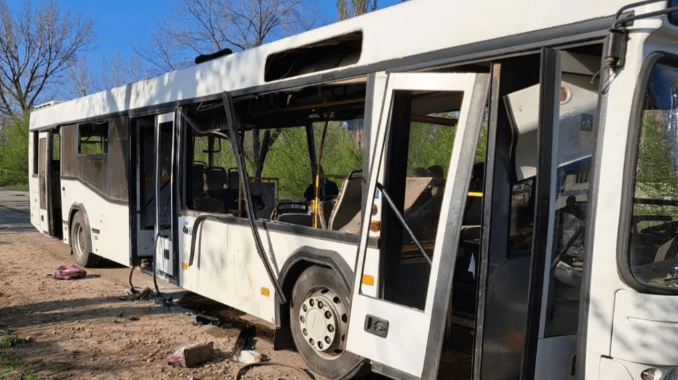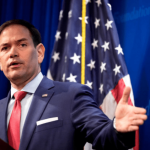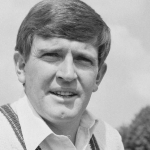A Russian drone attack has killed nine people and left dozens injured after striking a bus carrying workers in the Ukrainian city of Marhanets, officials confirmed.
The early morning strike on Wednesday in the south-central region of Dnipropetrovsk has sparked fresh outrage. Serhiy Lysak, the regional chief of Dnipropetrovsk, reported at least 30 others injured in the blast.
“The number of victims is constantly growing,” Lysak said in a brief update.
The deadly strike comes as high-stakes talks aimed at brokering a ceasefire between Russia and Ukraine appeared to lose momentum. Discussions, initially scheduled to take place in London with a major diplomatic presence, have now been downgraded.
Top US officials, including Secretary of State Marco Rubio and special envoy Steve Witkoff, have pulled out of the negotiations.
Just days earlier, Russian President Vladimir Putin had called for a temporary 30-hour ceasefire to mark Easter Sunday. Ukraine agreed to observe the same. Yet, accusations of violations swiftly followed from both sides.
This isn’t the first time peace hopes have hit a wall. Last month, Moscow tabled a detailed list of demands in response to a broader ceasefire deal that had reportedly been backed by the United States and Ukraine. While talks continue behind closed doors, progress appears slow.
This week’s meeting in London brings together senior representatives from the UK, France, Germany, the US and Ukraine, but not at the foreign minister level.
In place of Rubio and Witkoff, former Trump adviser Gen Keith Kellogg is representing the US. UK Foreign Secretary David Lammy will host a separate meeting with Ukraine’s foreign minister in what is seen as a more symbolic than strategic move.
This shift in diplomatic presence follows the withdrawal of key US officials from the London ceasefire talks, casting a shadow over the potential for meaningful progress.
Witkoff, a real estate tycoon and Donald Trump’s special envoy, has been acting as a backchannel between Washington and Moscow. He is expected to return to Russia later this week for direct talks with President Putin.
Amidst whispers of a possible US proposal to formally recognise Crimea as Russian territory, Ukrainian President Volodymyr Zelensky has made it clear—such a move is off the table.
Crimea has remained under Russian occupation since 2014, though it is internationally recognised as part of Ukraine.
Meanwhile, Trump has raised eyebrows with recent comments suggesting the US may pull out of further peace efforts if “Moscow or Kyiv make it very difficult” to strike a deal.
The full-scale invasion, launched by Russia on 24 February 2022, continues to devastate both countries. With hundreds of thousands dead or injured, the toll of war grows heavier by the day.
The Marhanets attack underscores the brutal reality facing civilians even as diplomats wrangle over ceasefire details. With talks stalling and military action ramping up, hopes for peace remain fragile. The international community watches closely, but on the ground, the human cost continues to rise.






